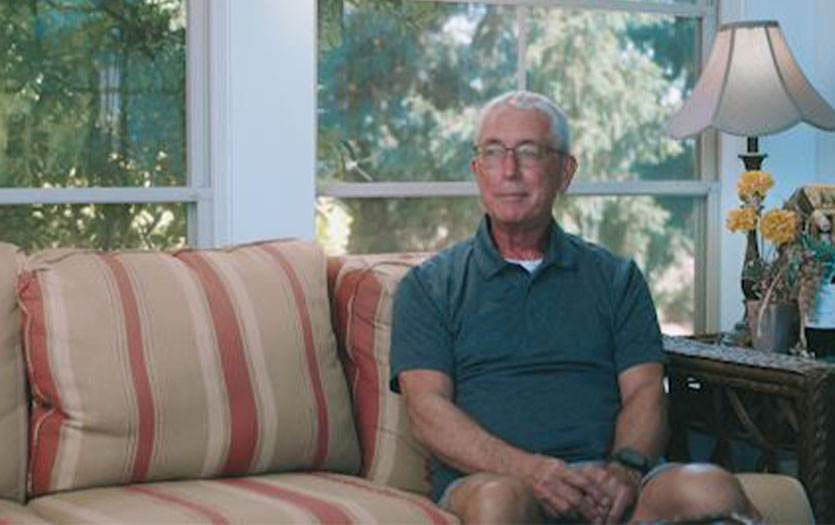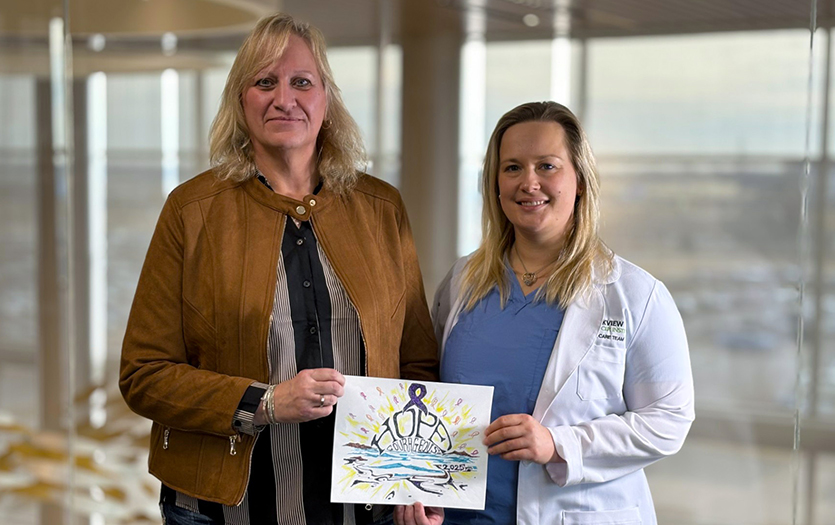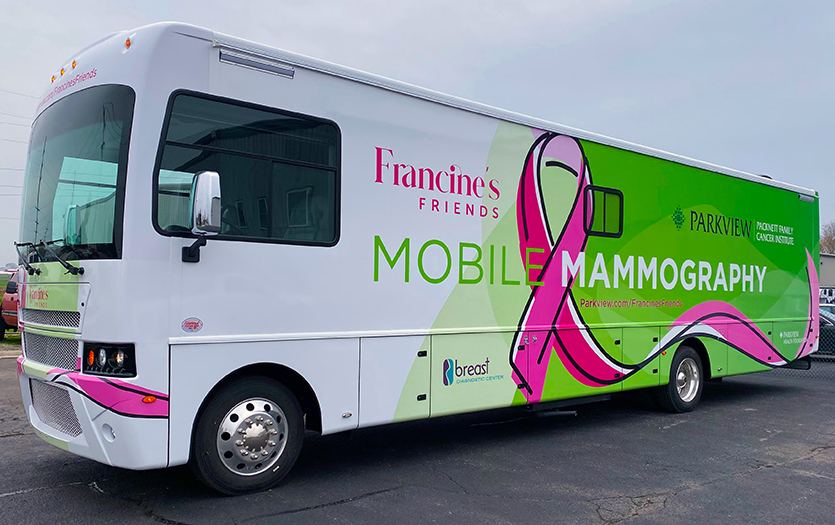Former Parkview co-worker, Jim Dougal has a wealth of medical knowledge. “I've been in healthcare since I became a registered nurse 47 years ago,” he said. It’s this history, as well as personal experience, that taught Jim the value of being proactive with personal wellness. “Putting things off really does nothing to help the situation. In fact, sometimes it can make it worse. If you have symptoms, see your doctor. Get a diagnosis and then treat it accordingly.”
Jim knows that it can be scary, but he’s learned that early intervention is always best. “Denial is strong, and a lot of people put things off,” he said. But he believes that facing your health head-on can lead to more successful treatment outcomes.
Flagging symptoms
“I had my own experience in the fall of 2023 when I began having heartburn on a consistent and persistent basis,” Jim said. “I realized that I was taking antacids four or five times a day. Being a nurse, I knew that wasn't normal. So, after about two weeks, I decided to seek healthcare.” Jim had a history of ulcers, so he figured that was the source of his discomfort.
Jim got an endoscopy on December 1, 2023. The biopsies at that time confirmed what his doctor suspected. “I had lymphoma of the stomach.”
Once Jim’s diagnosis was confirmed, he had additional tests, including a PET scan to stage the cancer. “It was stage 1, which is the best stage,” Jim shared. With this information, he met with Matthew Bartock, DO, Oncology: Hematology Care Team, Parkview Packnett Family Cancer Institute.
“I had confidence in Dr. Bartock immediately,” Jim said. “He talked me through everything and I knew I could beat this.”
Fighting back
“Jim was diagnosed with Extranodal Marginal Zone Lymphoma (EMZL lymphoma) in March 2024,” Dr. Bartock said.
Jim did his research and learned that EMZL lymphoma was, “a rare type of lymphoma, but it has a very high cure rate.”
Dr. Bartock offered additional detail. “It’s a subtype of Non-Hodgkin B-cell Lymphoma, a gastric extranodal marginal cell lymphoma.” Also called MALT lymphoma, EMZL lymphoma is linked to instances of H. pylori infection. “Jim uniquely was treated for this infection in 2004, not once but twice. We often pursue observation. However, in gastric, we consider up front therapy, depending on what the disease is caused by. In most cases, radiation therapy is thought to deliver a long-term response, often putting the patient into remission multiple years, if not indefinitely.” After taking all aspects of Jim’s condition into consideration, Dr. Bartock and his peers on the PFCI Tumor Board, chose this course of treatment for Jim.
Jim had self-belief on his side. “This can be very serious, but It didn't matter to me because I was going to hit it head on,” he said. “There were 12 treatments in total, and it was really surprising to me how quickly the treatment was, just a matter of a minute or two, and I really felt nothing.”
The value of surveillance
“I often recommend repeat endoscopies at least yearly for one to two more years,” Dr. Bartock said. “Also, if symptoms develop, we repeat the endoscopy. Between the endoscopies, I repeat labs. I’m specifically looking for changes in the blood counts, whether the patient is developing new anemias or new iron deficiencies, which can often be the first sign of relapse.”

Dr. Bartock emphasized that this process is a differentiator for lymphoma patients. “Ongoing surveillance is extremely important for monitoring the disease, as well as establishing what the new baseline is. This is a disease that does not always require treatment. However, if the patient has ongoing symptoms, we want to improve their quality of life, as well as decrease the chance of this spreading outside of the stomach throughout the rest of the body.”
Jim agrees. “With any type of cancer, you have to have surveillance, and Dr. Bartok told me from the get-go, we were going to be seeing a lot of each other for the next three to five years,” he said. “And I'm good with that. Whatever I need to do, I'm committed to doing it so I can stay healthy.”
A learning experience
“I hope that Jim's story will encourage you to seek medical opinions if you have ongoing, unresolved medical problems or symptoms,” Dr. Bartock said. “If we catch this disease early, it can improve the quality of life and decrease anxiety. This allows us to hopefully keep the patient in remission status for a long time. And hopefully with that detection and surveillance, we can improve overall survival.”
“I'm really confident in the skills of my medical team and that gives me the confidence to stay positive and know that I can continue to heal,” Jim said. “And at some point, you know, you also have to be a realist. The one thing I want to get through to everyone is prevention is the best route. If anyone is taking antacids on a routine basis, that’s not normal. And the bottle even says, do not take more than two weeks without seeking medical advice. And if you ignore that, you might end up with something serious that didn't have to be so serious.”
If you have concerns about any symptoms you’re experiencing, talk to your primary care provider. If you wish to connect with the Parkview Packnett Family Cancer Institute, fill out our contact form or call 833-724-8326 or 260-266-7100 for guidance or a second opinion.



